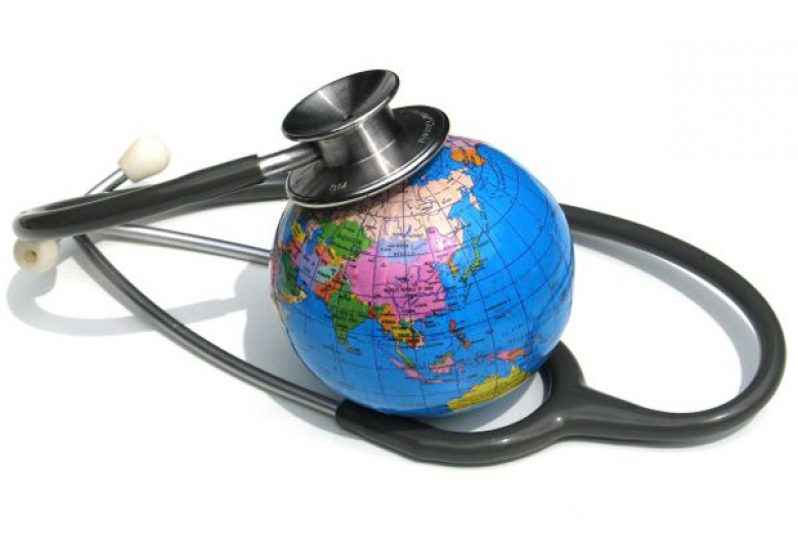—case involving death of Guyanese visitor in T&T
THE SUDDEN death in Trinidad and Tobago last Thursday of 35 –year-old Guyanese visitor Jeetindra Sookram, holidaying in Trinidad and Tobago with his common-law wife, Vidya Baichu, has dramatically brought to public attention the urgent need to correct a serious weakness or deficiency in the Revised Treaty governing the functioning of the Caribbean Community.
It could be likened to a tragedy waiting to happen. Ironically, it has occurred in the Community state that’s rightly recalled as the birth place (at Chaguaramas) of what exists today as the 41-year-old 15-member regional economic integration movement currently struggling to keep hopes alive for transformation as a seamless or single economy with similar fundamental rights for ALL its citizens.
The words that quickly came to mind on reading of the sad circumstances surrounding the sudden death, from suspected heart failure, of the CARICOM national Sookram, farmer by profession, were “contingent rights”. If such a right was applied, it could have resulted in the visitor receiving the required emergency medical treatment when needed.
Regrettably, a cluster of “contingent rights”–applicable to any uncertain event or circumstances–(e.g the Sookram case)–although discussed over the years for proposed incorporation in further revisions of the CARICOM treaty, remains a work in progress.
However, the Secretary General of CARICOM, Irwin LaRocque, reassuringly said in our telephone conversation yesterday that, in accordance with an updated decision by Heads of Government, the Secretariat was vigorously engaged for submission of an all embracing document dealing with “contingent rights” applicable to all citizens, including required emergency medical attention, in all member states.
‘Contingent rights’ for Summit
This document, to be considered by the Attorneys General and Ministers of Legal Affairs, would be forwarded to all member states of the Community ahead of the forthcoming annual Heads of Government Conference scheduled for July in Antigua, for inclusion in the further mandated revision of the CARICOM Treaty.
The Secretary General said it was a matter of deep regret when unfortunate incidents such as the case involving visitor Sookram occurs. He felt it could serve as a reminder why the governments of the Community should be even more forthcoming in advancing the work programme on ‘contingent rights’ for citizens.
Interestingly, against the backdrop of the Sookram case, T&T’s Health Minister Dr Fuad Khan quickly moved into a defensive posture to make clear that the visitor was “never denied medical care” when first sought at the Eric Williams Medical Sciences Complex.
Curiously, according to media reports, what subsequently got in the way was a so-called little “pink form” that required payment for relevant medical attention which the ailing heart patient could not afford, as explained by his wife, Vidya. So, they felt compelled to seek alternative medical attention elsewhere but it was too late in coming.
What followed included ongoing Georgetown/Port-of-Spain ministerial/diplomatic engagements to objectively assess all the circumstances surrounding the death of Sookram. And, hopefully, why there should be no such recurrences.
While there would be critical evaluations of the prevailing management systems within Trinidad and Tobago’s quite expansive and modern health sector to avoid challenges as surfaced in the death of Sookram, the reality is that in various other CARICOM jurisdictions, complaints are often voiced about discrimination, or negligence, in the medical treatment of visiting or non-resident Community nationals.
Such discrimination, or denial of access to even emergency assistance, could extend even to some accident cases requiring payment for ambulance services. In contrast, in Jamaica and Guyana for example, official policies guarantee non-discrimination and non-denial in the treatment of CARICOM as well as foreign visitors in need of emergency medical attention.
In relation to Jamaica, there are, nevertheless, provisions for payments to be made subsequent to medical treatment received in certain categories.
For now we must anxiously await realisation of promised progress on the vital issue of including “contingent rights” in the mandated revision of the CARICOM Treaty. The challenges facing non-nationals of the Community requiring emergency medical assistance, either from accidents, falling ill as “visitors”, or while “on business”, are quite serious and worrying.
(By Rickey Singh
–in Barbados)




.png)









